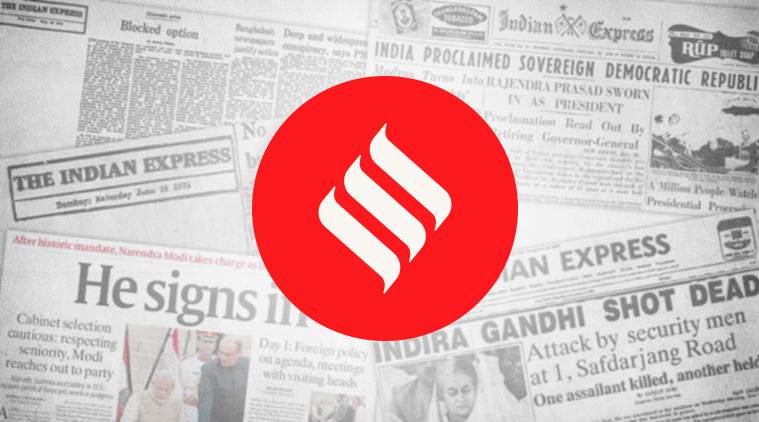 Delhi Police needs to answer why uniformed men in riot gear, helmets, shields and jackets can be seen to trample over the sanctity of a library on campus, and the principles of rule of law.(File)
Delhi Police needs to answer why uniformed men in riot gear, helmets, shields and jackets can be seen to trample over the sanctity of a library on campus, and the principles of rule of law.(File)
The video released by the students’ organisation coordinating the protests against the new citizenship law in Delhi’s Jamia Millia Islamia corroborates student testimonies and casts Delhi Police more squarely in the dock. It also appears to underline a chilling message. That a police force which calls itself professional can apparently unabashedly enter a university’s library and indiscriminately assault unarmed students, and try to get away with it — two months on, even an FIR has not been registered on the complaints filed against the police by the university and the students. All the police’s denials — it didn’t enter the library, it had said — and all its arguments — that it was in hot pursuit of rioters with stones — seem gravely questionable. Delhi Police needs to answer why uniformed men in riot gear, helmets, shields and jackets can be seen to trample over the sanctity of a library on campus, and the principles of rule of law, on the evening of December 15 2019. It needs to conduct a fair probe, and urgently punish its own guilty.
Delhi Police’s apparent excesses, its evident impunity, seem enabled and countenanced by a larger framework in which the citizen’s fundamental right to protest is looked at with suspicion and the protesting citizen is labelled “anti-national”. In the last few days, at least two powerful voices have pointed to the perils of such a framework in a plural democracy that is committed to individual freedoms, and respectful of its minorities. As a first step in a much-needed course correction, Delhi Police and its political masters would do well to listen in. Setting aside an order by the Additional District Magistrate against allowing protests in Maharashtra’s Beed, the Aurangabad Bench of the Bombay High Court said, “This court wants to express that such persons cannot be called as traitors, anti-nationals only because they want to oppose one law. It will be act of protest and only against the government for the reason of CAA…” And speaking in Ahmedabad on Saturday, Justice DY Chandrachud described dissent as the “safety valve of democracy” and spoke eloquently about its “true test” — “its ability to ensure the creation and protection of spaces where every individual can voice their opinion without the fear of retribution”. A state committed to the rule of law, he said, “ensures that the state apparatus is not employed to curb legitimate and peaceful protest but to create spaces conducive for deliberation”.
The Jamia tape, the Aurangabad Bench of Bombay High Court and the Supreme Court judge have struck the same cautionary note: Dissent and protests call for a listening government in a deliberative democracy, not a police crackdown. By reiterating on Monday that the right to protest is “fundamental” and by appointing two senior lawyers as mediators, to be assisted by a former chief information commissioner, to talk to the protesters at Shaheen Bagh and persuade them to shift the venue of their sit-in, the Supreme Court has lent its imprimatur to it too. So if the Delhi Police don’t do their job of fixing accountability, the courts should walk their reassuring talk.